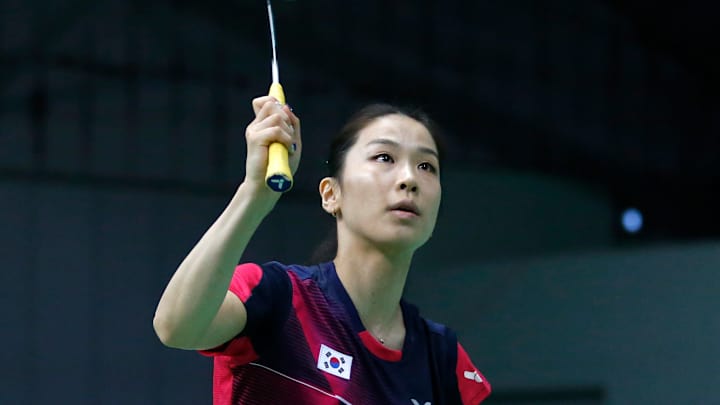Badminton tries to shake off scandals at the Rio Olympics

SEOUL, South Korea (AP) Badminton at the Rio Olympics will try to shake off multiple scandals and adapt to a rule change many consider an attempt to curb Chinese dominance.
Seen as backyard fun by many Americans, the sport is serious business for millions in Asia and parts of Europe, where throngs of people pack stadiums to watch players who are household names.
It's less popular in Brazil, and that has some players worried about what's in store for them.
Those who tune in will see an appealing blend of power, speed and agility, with long rallies that can seem like video games as the shuttle whizzes back and forth across the net and players stretch like gymnasts to parry smashes that can reach speeds of well above 100 miles per hour.
Here's a look at what to expect in Rio from a game named after a 19th century English duke's country house:
---
SCANDALS
Badminton has been rocked by scandal in recent years and is hoping the Olympics will provide a chance to move on.
At the 2012 games in London, two South Korean women's doubles teams along with a Chinese and an Indonesian team were disqualified for trying to lose early matches so they could get better draws in the knockout round.
Two of the disgraced South Koreans, Kim Ha-na and Jeong Kyung-eun, made the Olympics team for Rio. ''Time has passed and I've moved on and grown up,'' Kim said recently. ''Although I still have bad memories, I will never make the same mistake again.''
The current No. 1 men's singles player, Lee Chong Wei of Malaysia, served an eight-month ban for doping. Lee said he took an anti-inflammatory drug inadvertently, and a panel said he had been negligent, rather than intending to cheat.
A gambling scandal, meanwhile, has hurt the chances of the recently improved Japanese men's team. Kento Momota, a young star who had been ranked No. 2 in the world, was banned from the Olympics after admitting to gambling at an illegal casino in Japan.
---
END OF CHINESE DOMINANCE?
China won gold in all five badminton events in 2012, and many top Chinese will again be contenders.
But competition in Rio is likely to be more open after an Olympic rule change that limits countries to two singles entrants in each event. Each country could previously enter three, something that benefited China's deep field of talent.
Even without the change, however, the rest of the world has been gaining on China.
The current top men's and women's singles players are non-Chinese - Malaysia's Lee Chong Wei and Carolina Marin, of Spain - although both of the No. 2 and No. 3 players are Chinese.
---
THREEPEAT?
China's Lin Dan, considered by many the greatest men's player of all time, will be going for his third consecutive singles gold.
He won at home in Beijing in 2008 and again in London in 2012, both times against his top rival, and perhaps the second greatest player of his era, Malaysia's Lee Chong Wei, who is now considered the top gold medal contender.
Lin, currently ranked No. 3, is no longer the top-ranked player even in China, eclipsed by world champion Chen Long, the world No. 2.
Both Lin and Lee are old by badminton standards: Lin is 32; Lee is 33.
Still, Lin combines a powerful attack, agile defense and subtle net play, and many fans are hoping for a dramatic rematch between Lin and Lee.
---
VENUE
Brazil is not a traditional badminton power, and there is some worry about fan support and the arena's layout.
Lin Dan, used to huge, adoring crowds and dedicated badminton arenas, mentioned what he considered the venue's small size after playing a test event there last year.
Air drifts and currents are also worries when playing top-level badminton in a place that's not used to it. Drifts can play a major, detrimental part in a game by changing the direction and speed of the shuttle, which is conical, made of 16 goose feathers stuck to a leather-covered round cork, and weighs only about 5 grams.
Major drift culprits include air conditioning and the opening and closing of doors and windows.
To be fair, there were drift complaints even at the Olympics in England, where the modern version of the game was developed in the 19th century. To try to compensate for any drifts, players change ends during matches.
---
AP TV journalist Jungho Choi contributed from Seoul.
---
Foster Klug, AP's bureau chief in Seoul, South Korea, is covering table tennis and badminton in Rio. Follow him at www.twitter/apklug
